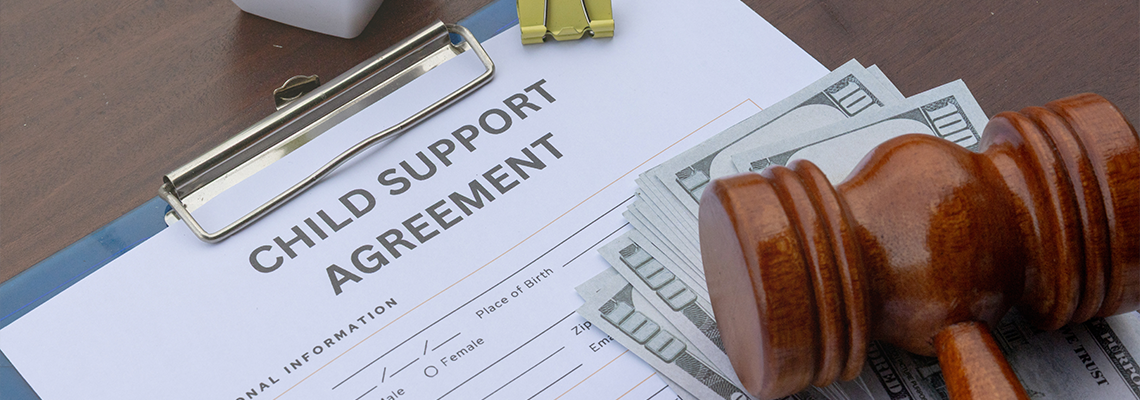
Divorce is never an easy decision. The process of ending a marriage can be overwhelming and emotionally exhausting. One of the initial decisions divorcing spouses face is whether their divorce will proceed as contested or uncontested. This choice has significant implications for how efficiently the divorce moves forward, the costs involved, and the level of stress each party may experience.
At Le Fleur Law LLC, Attorney Annie Le Fleur combines years of legal experience with a client-centered approach. Known for her compassion and aggressive courtroom representation, she delivers customized legal strategies for clients in Colorado to help them make informed decisions about their divorce.
If you or someone you know is going through a divorce, Le Fleur Law LLC offers the representation you need to protect your rights and set the foundation for your future. This blog explores the key differences between contested and uncontested divorces, discusses Colorado-specific laws governing divorce, and provides an overview of how an attorney can be invaluable during the divorce process.
What Is a Contested Divorce?
A contested divorce occurs when the divorcing spouses cannot agree on one or more issues. These disputes may involve any multitude of issues, including but not limited to:
Division of assets and debts
Child custody and visitation schedules
Child support payments
Alimony (spousal maintenance)
Any other terms related to the divorce agreement
When disagreements arise, the case will be heard in court, where a judge will have the final say on these matters. This process often requires multiple court hearings, mediation attempts, and significant time and financial resources.
Challenges of a Contested Divorce
Contested divorces, by definition, can take considerable time and result in financial strain, emotional stress, and prolonged legal battles. Some of the primary challenges of contested divorces include:
Lengthy process: Contested divorces can take months to resolve. In more complicated cases, contested divorces may even last for years.
Cost: Due to court fees, legal representation, and other associated expenses, contested divorces are typically much more expensive than uncontested ones.
Emotionally taxing: Repeated court appearances and ongoing disputes add to emotional strain.
Contested divorces are sometimes inevitable, but working with an experienced attorney can help work through the process with less turmoil. At Le Fleur Law LLC, Attorney Annie Le Fleur combines steadfast advocacy with compassionate guidance to represent your needs effectively.
What Is an Uncontested Divorce?
An uncontested divorce occurs when both spouses agree on all the essential terms of the divorce. This includes decisions about property division, parenting arrangements, and financial matters. Since there are no unresolved disputes, the legal process is quicker and less burdensome. Some of the benefits of an uncontested divorce include, but are not limited to, the following:
Time-saving: Without court hearings or prolonged negotiations, uncontested divorces are often resolved in a few months.
Affordability: With less time spent on legal proceedings, uncontested divorces are significantly more cost-effective.
Privacy: Couples can settle their divorce agreement without airing personal grievances or financial details in court records.
Less conflict: This process promotes a more amicable separation, reducing emotional strain for both parties and any involved children.
An uncontested divorce is ideal for couples who are on relatively good terms and can negotiate the terms of their separation calmly. That said, an attorney can help make sure nothing is overlooked and that the agreed-upon terms are legally binding.
An Overview of Colorado Divorce Laws
Colorado imposes strict regulations on how couples can file for divorce. Understanding the key points of Colorado divorce law can help you better prepare for the process. Some of the key laws you should be aware of include the following:
No-fault state: Colorado recognizes no-fault divorce. This means that the spouse filing for divorce doesn’t need to prove wrongdoing (e.g., infidelity). Instead, the spouse only needs to show that the marriage is “irretrievably broken.”
Residency requirement: At least one spouse must have lived in Colorado for a minimum of 91 days before filing for divorce.
Property division: Colorado follows an "equitable distribution" model. This means that the court will strive to divide marital property fairly between the spouses, not necessarily equally.
Spousal maintenance (alimony): Courts consider several factors, including the length of the marriage, financial independence of each spouse, and standard of living during the marriage, to determine alimony payments.
Parental responsibilities: Instead of terms like "custody," Colorado law emphasizes parental responsibilities, focusing on the child's best interests when determining parenting time and decision-making rights.
Should You Pursue an Uncontested Divorce?
While uncontested divorces simplify the process, they require complete agreement between spouses, which doesn't apply to all marriages. Before pursuing an uncontested divorce, it's important to ask yourself the following questions:
Are both me and my spouse willing to communicate openly?
Do both me and my spouse agree on all financial arrangements?
Is there a clear understanding of parenting responsibilities if children are involved?
Are there any complex assets (e.g., businesses, real estate) that may complicate the settlement?
If you answered "no" to any of these, a contested divorce might be the only route forward. However, even in contentious situations, an experienced litigator can help you resolve potential conflicts and strive for equitable outcomes.
Divorce Attorney Serving Grand Junction, Colorado
Facing a divorce is never easy, but knowing whether you're facing a contested or uncontested divorce can help you better prepare. At Le Fleur Law LLC, Attorney Annie Le Fleur provides zealous legal advocacy to help her clients better understand their options. Using a client-centered approach, she strives to make sure every client receives tailored guidance throughout their divorce.
If you or someone you know needs legal support for a divorce in Grand Junction County, Mesa County, Montrose County, or Delta County, Colorado, call Le Fleur Law LLC today to schedule a consultation.



